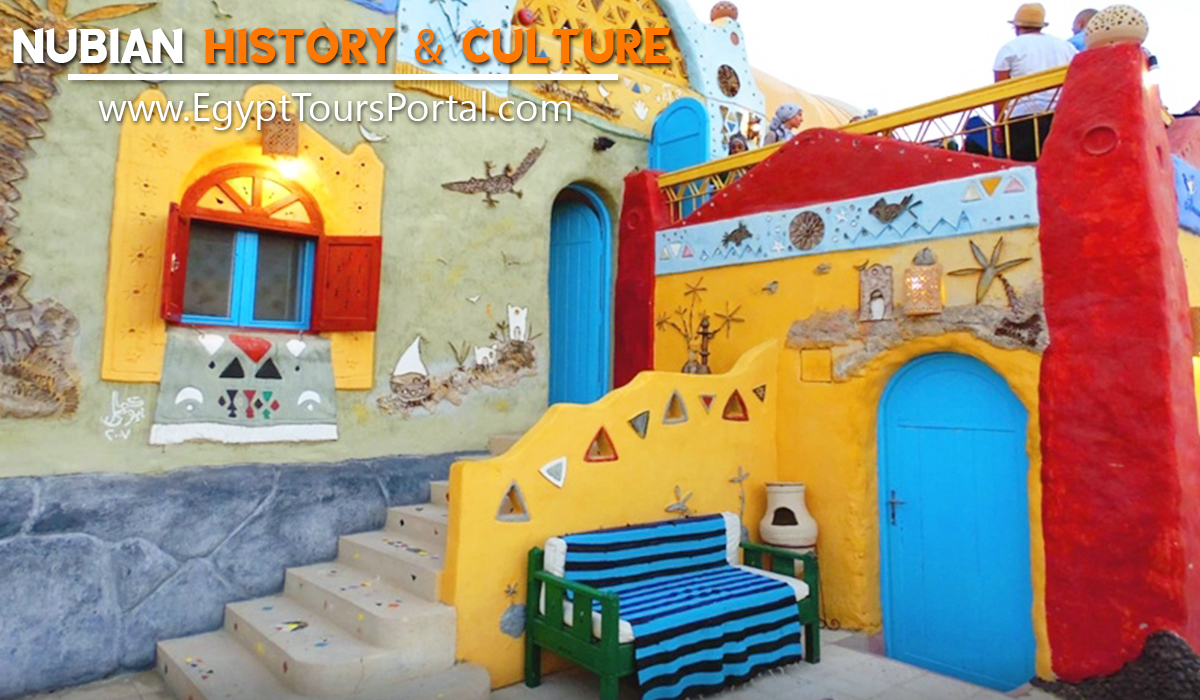
Nubian culture is a magical subject to discuss which sheds some light on the marvelous history, facts, and monuments of the Nubian People. The main purpose of this article is to offer everyone all the information and details about the history, culture, and monuments of the ancient Nubian in Egypt. All the information and facts in this article have been collected and written by a group of very skilled team of tour operators, tour guides, and travel consultants who have more than two decades of experience and knowledge of the history and culture of ancient Egypt.
Nubia is more than an ancient piece of land but a place that holds the most honorable, bravest, and strong people that the world came to know. The Nubians were strong warriors, influential & cunning rulers who played a vital role in the creation, rise, and evolution of the ancient Egyptian civilization across history. The Nubian culture is a hidden treasure found in the holly southern lands of Egypt offering travelers from all over the world to discover a whole new aspect of life filled with marvelous beauty, honor, and wonder.
The Nubian region lies on the Nile River, 123,000 square kilometers between the city of Aswan in southern Egypt and Khartoum in central northern Sudan. It was one of the first civilizations of ancient Africa as the history of Nubia was traced from 2000 BCE onward to 1504 AD. Alara the King of Kush "Nubia" who is the first recorded prince of Nubia, founded the Napatan, or Twenty-fifth, Kushite dynasty at Napata in Nubia, which is known today as Sudan. Alara's successor, Kashta, extended Kushite control north to Elephantine and Thebes in Upper Egypt.
During Egypt new kingdom period of Egypt (1570 AD – 1070 AD) pharaoh Thutmose I invaded the land around 1500 BC. Nubia was highly famous for being the home of many powerful kingdoms, most prominent is the kingdom of Kush which even conquered Egypt in the 8th century BC and formed the 25th dynasty.
The 25th Dynasty of ancient Egypt was a special time in which a number of Nubian pharaohs and rulers took power who, for the most part, essentially integrate completely into the Egyptian culture. The Nubians introduced some of their cultures into Egypt but kept governing rules, artistic style, religious traditions, temples, and constructions methods the same. The Nubians revived the tradition of pyramid building but were not successful. The Nubians ruled over parts of Egypt for about 100 years but were defeated and eventually pushed out by the Assyrians.
The relationship between Egyptians and Nubians was actually very peaceful across most of history despite turning conquering each other from time to time. There was extensive cultural interchange and marriage between the two cultures and many Egyptian Pharaohs & Nubian Queens, even before the 25th Dynasty, had Nubian DNA and heritage running through their blood.
In the 4th century AD, the great kingdom of kush came to an end then Nubia was divided between Egypt and the Senner sultanate which led to the partial Arabization & rapid Islamization in the 16th century by the Ottoman empire. However, during the 19th century in 1899, the Khedive of Egypt united the entire region.
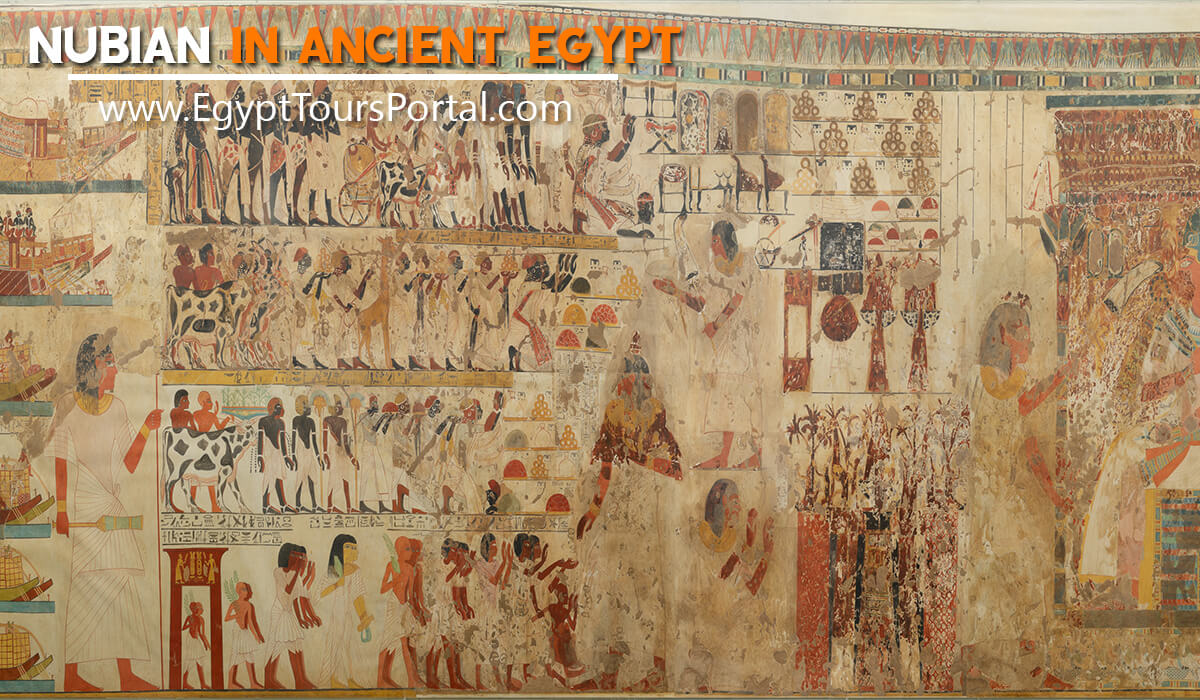
The first-ever mention of Nubians in the history of ancient Egypt was found in Egyptian trading accounts which dates back to 2300 BCE. The Nubians are considered to be one of the oldest ethnic groups in the world, known for their kind nature, great hospitality, and their possession of rich history and enchanting culture. Nubians are a family branch of an ancient African civilization that once lived and ruled Egypt. Most of the Nubians can be found living in their ancestral homeland in southern Egypt and northern Sudan.
The Nubian's origin can be traced back to Sudan and their historical homeland is commonly known as Nubia. The Nubians originate from the central Nile valley area so they can begin farming. They played a major role across the history of ancient Egypt and during the medieval period, converted to Christianity and formed three kingdoms called Nobatia, Makuria, and Alodia. The Nubian people also practice Islam.
Despite the fact that the Nubians reside in two different countries, it is vital to understand that they have their own culture, plus their own languages. There are Five modern Nubian languages spoken; Kenzi, Nobin, Birgid, Midob, and Kordofan Nubian. The languages are very similar, but they change depending on the region in which the Nubian people are located.
The Nubians were also known to be strong and fierce soldiers, especially in archery. They were known as the legendary warriors of the Medjay, which was an area of land where the Nubians lived but later on came to mean an elite and deadly paramilitary force in the Egyptian army. Around 3500 BCE, Egyptians called the Nubian region “Ta-Seti,” which means “The Land of the Bow,” a reference to Nubian archery skills.
The Nubians were famous for their ferocity in battle but worked in all aspects of ancient Egyptian society such as merchants, attendants, and temple employees.
The Nubians played a key role in the ascend and success of ancient Egyptian civilization, and they are considered to be an integral part of Egypt and especially Egyptian tourism.
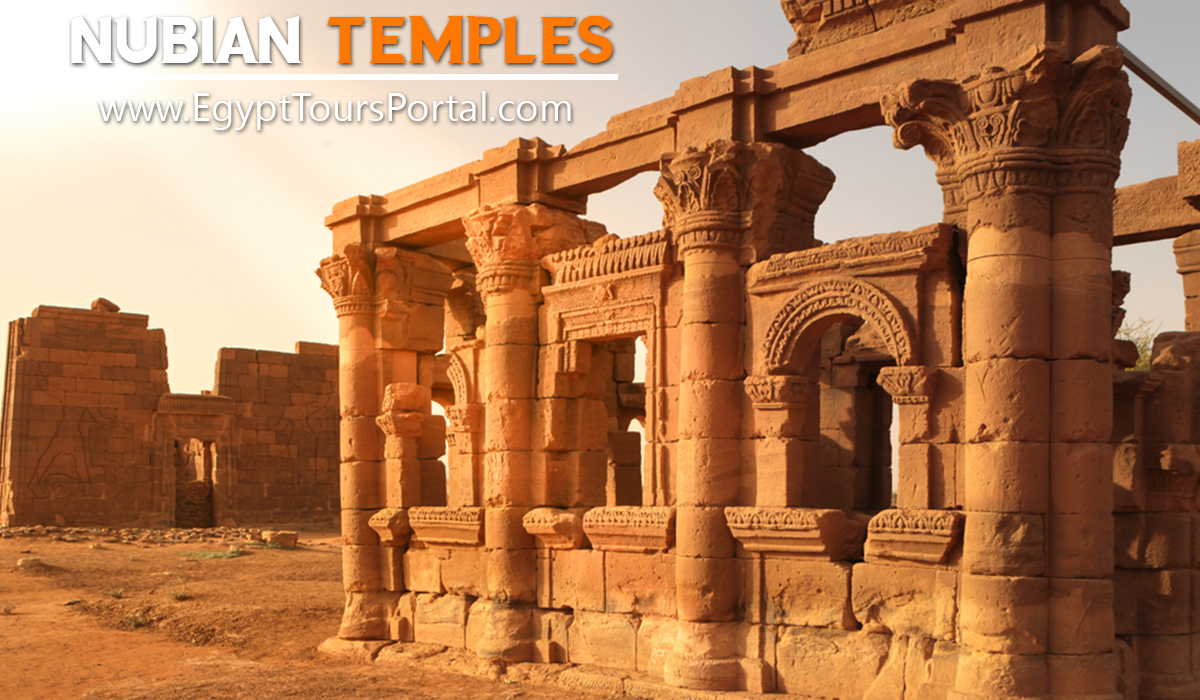
The Nubia area is highly famous for containing two of the most famous temples in the history of ancient Egypt, the Temple of Philae and Abu Simbel temple. Both the two temples were rescued by UNESCO in the mid-60s because of the disastrous consequences of the High Aswan Dam and there are must be visited attractions through Nile river cruise between Luxor and Aswan. There are 11 sites located between these two temples that were built under the ruler of Nubian kings. The most incredible Nubian Constructions include :
Temples of Abu Simbel belong to Ramses the Great (1292-1186 BC) which was created in 1200 BC to immortalize his great legacy and especially his victories like the battle of Kadesh plus honor the great god Amun. Next to it is the second temple belonging to his beloved wife Nefertari which honors the Goddess Hathor.
Philea Temple is the last temple of its kind to be built in Egypt in the Ptolemaic period between 380-360 BC. It is famous for containing the legendary tales of Isis goddess of motherhood and healing the wife of Osiris the ruler of the underworld. It was a very popular pilgrimage site for Egyptians, Nubians, and travelers from as far as Greece and Crete.
A granite quarry is a strange attraction, famous for what is located inside the quarries themselves. The granite quarry in Aswan is home to two unfinished obelisks. One of the obelisks, had it been completed and erected, would have been nearly one-third larger than any other obelisk in Egypt which is believed was commissioned by Queen Hatshepsut.
Qasr Ibrim was once famous for being a fortress and a major city located on a cliff above the Nile. But after the construction of the dam, Qasr Ibrim is now situated on a rocky island in the middle of the Nile River which makes it very difficult be visited by tourists.
The Temple of Kalabsha is was built around 30BC during the Roman era as a tribute to the Nubian sun god Mandulis, however, it was never completed.
Beit al-Wali is another incredible temple that was built by Rameses II. It was one of Ramesses II Nubian temples built in order to maintain Egyptian control over Nubia. It is believed that this temple was the first one to be built to serve this purpose.
It is a small shrine dedicated to Thoth the god of knowledge and wisdom, the Temple of Dakka was expanded during the Roman period and used as a fortress along the Nile River.
The temple of Maharraqua is a tiny, unfinished temple with a mysterious history. Scholars have been unable to understand who built this temple or its purpose. It does have one very unique feature; a winding staircase that leads to the roof. This is the only one of the Nubian monuments with this design.
The temple of Amada is the oldest temple in Nubia as it was built in the 18th dynasty by pharaoh Thutmose III and dedicated to Amun and Re-Horakhty. Several pharaohs were added to this temple over time included Ramesses II.
The Temple of Derr was Built by Ramesses II. It is a rock-cut temple that was dedicated to Re-Horakhty that is a combination of the gods Horus and Ra, Horus was the god of the sky, and Ra was the god of the sun.
A Small Roman Kiosk with Six columns that still remained unfinished, what can be seen of the structure is beautiful.
Another rock temple was built by Ramses II as part of his Nubian temples. Today, it resides in a valley with two New Kingdom temples.
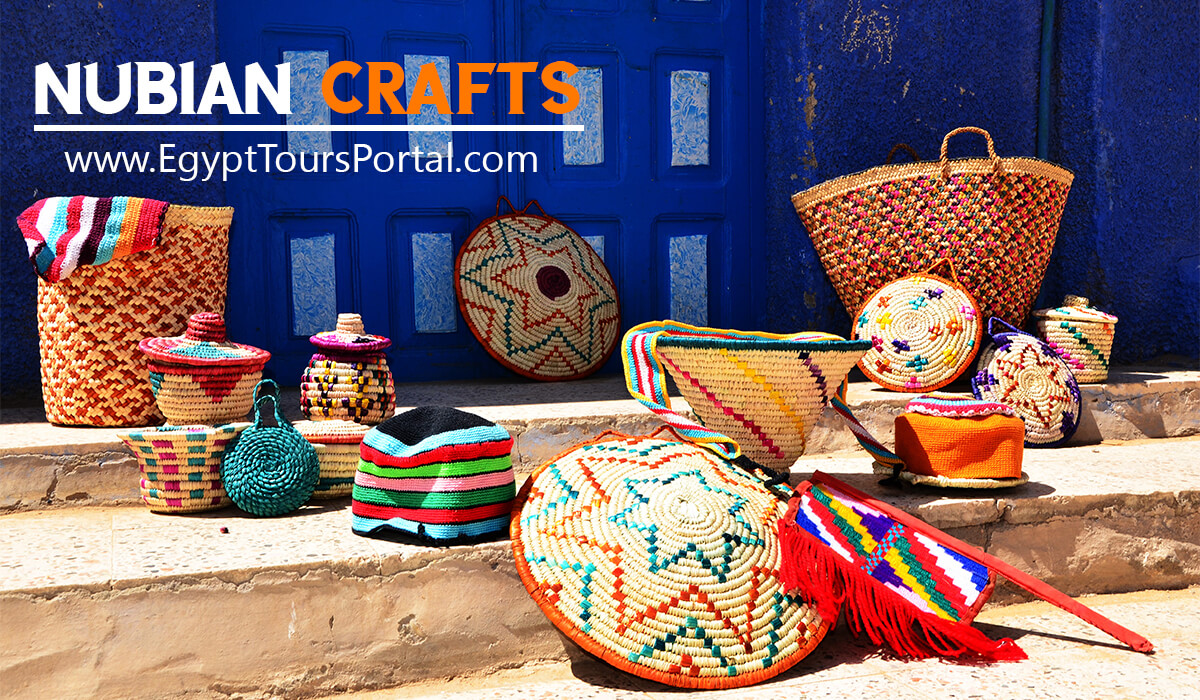
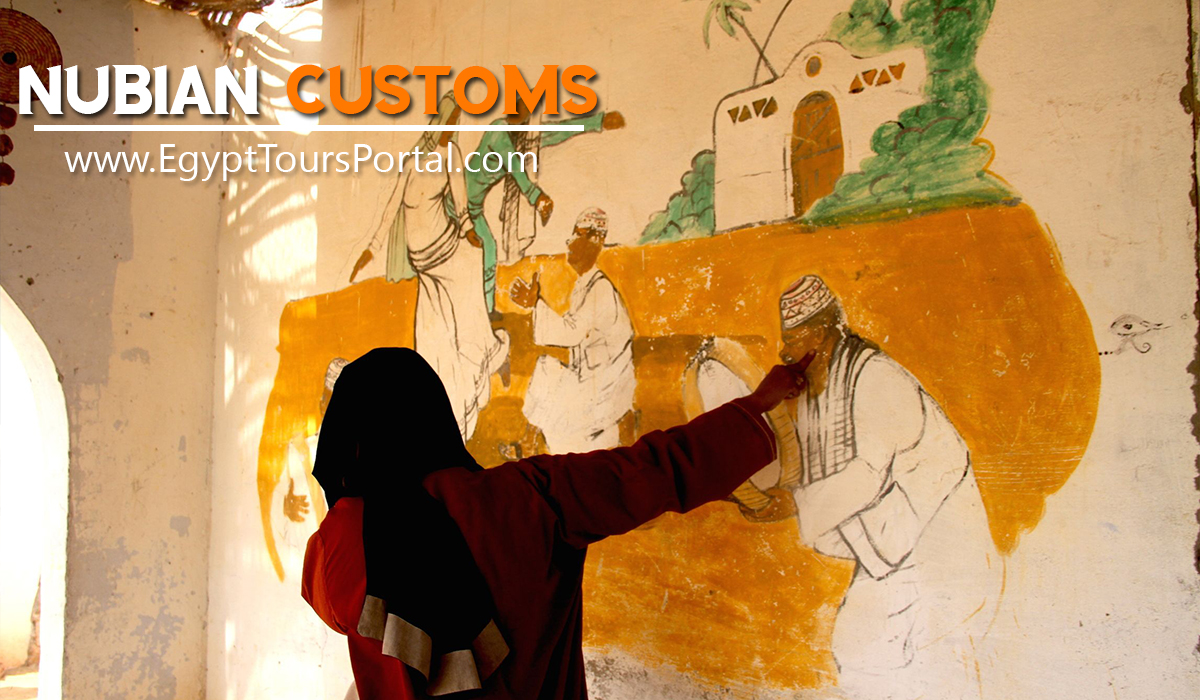
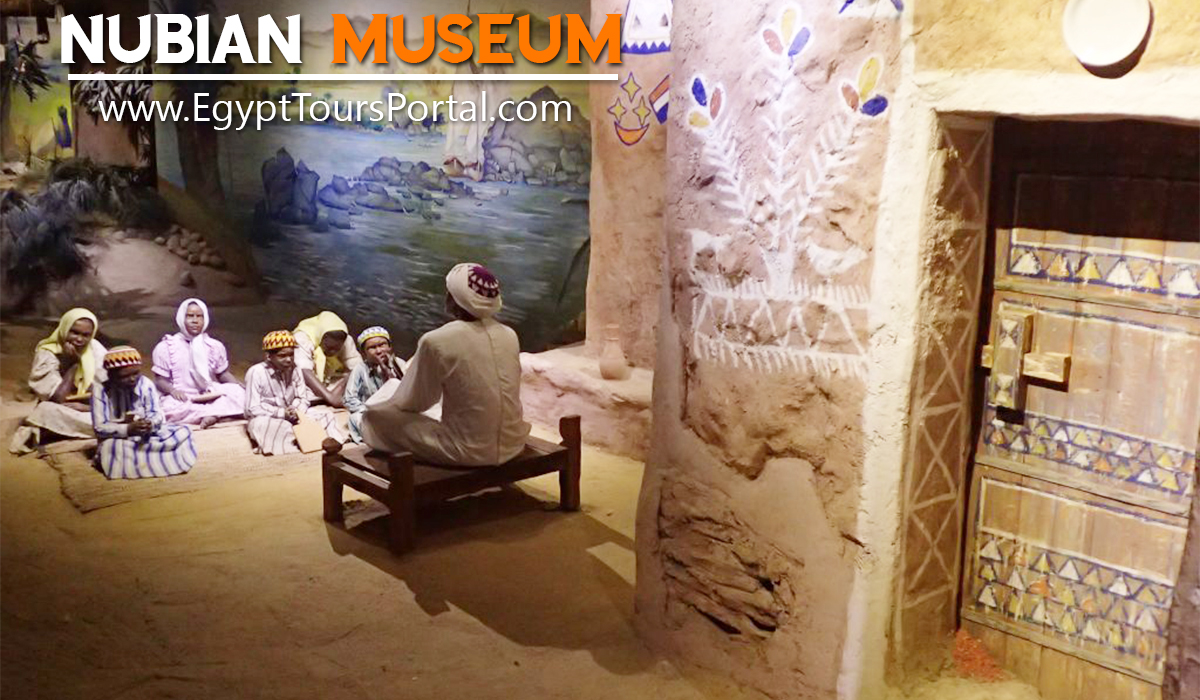
Our section Egypt private tours contain the most important Egypt tours that can help you to discover the history and culture of the Nubian village and visit Egypt in the right way, check it and book your dream vacation to the land of pharaohs plus enjoy one of Nile cruise holidays to witness the miracles of ancient Egypt in the embrace of temples & tombs of Luxor & Aswan.
Private 4 Days Cairo Tour Packages for South African Travelers 4 days Cairo Egypt To...
Tour Location: Cairo – Giza...
5 Days Cairo and Alexandria Tour Package For South African Travelers 5 days Cairo an...
Tour Location: Cairo/Giza/Alexandria...
6 Days Cairo, Luxor & Aswan Tour Package For South African Travelers 6 days Cair...
Tour Location: Cairo/Giza/Aswan/Luxor...
Amazing 7 Days Cairo and Hurghada Holiday for South African Travelers 7 Days Cairo &...
Tour Location: Cairo – Giza – Hurgh...









